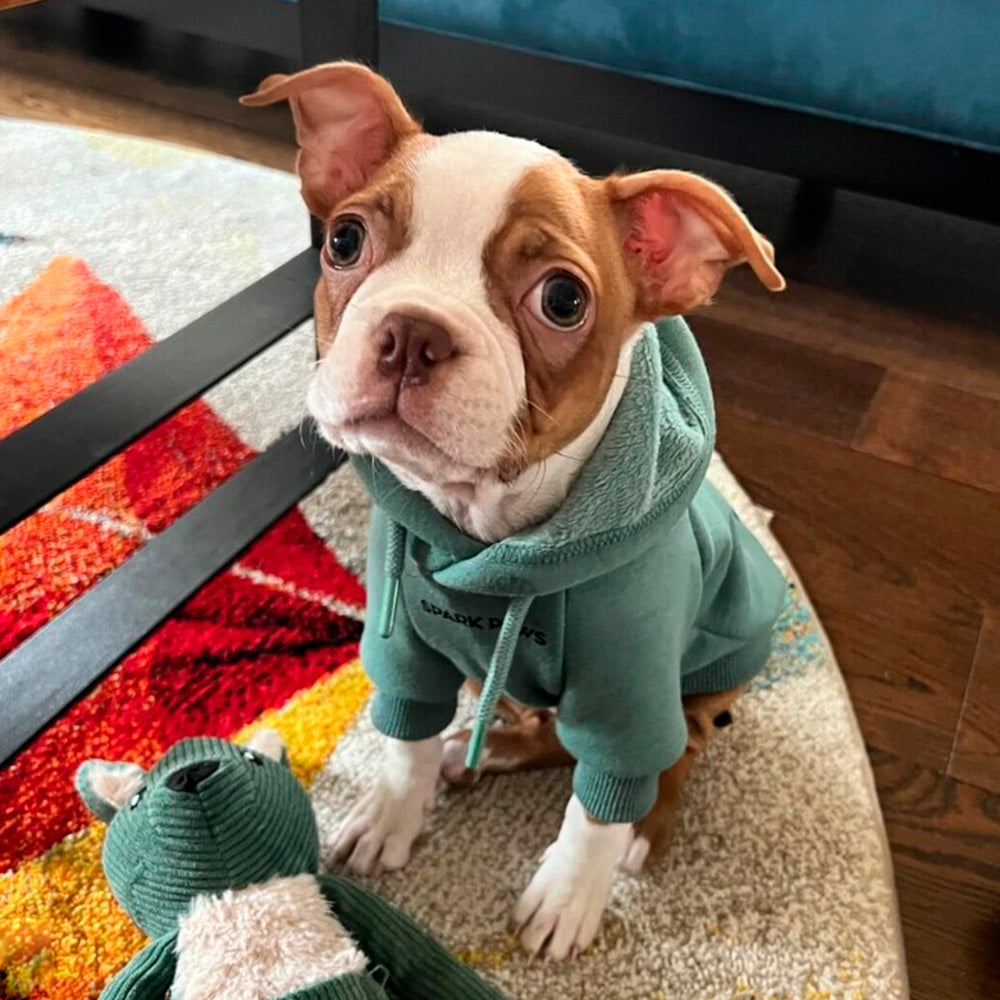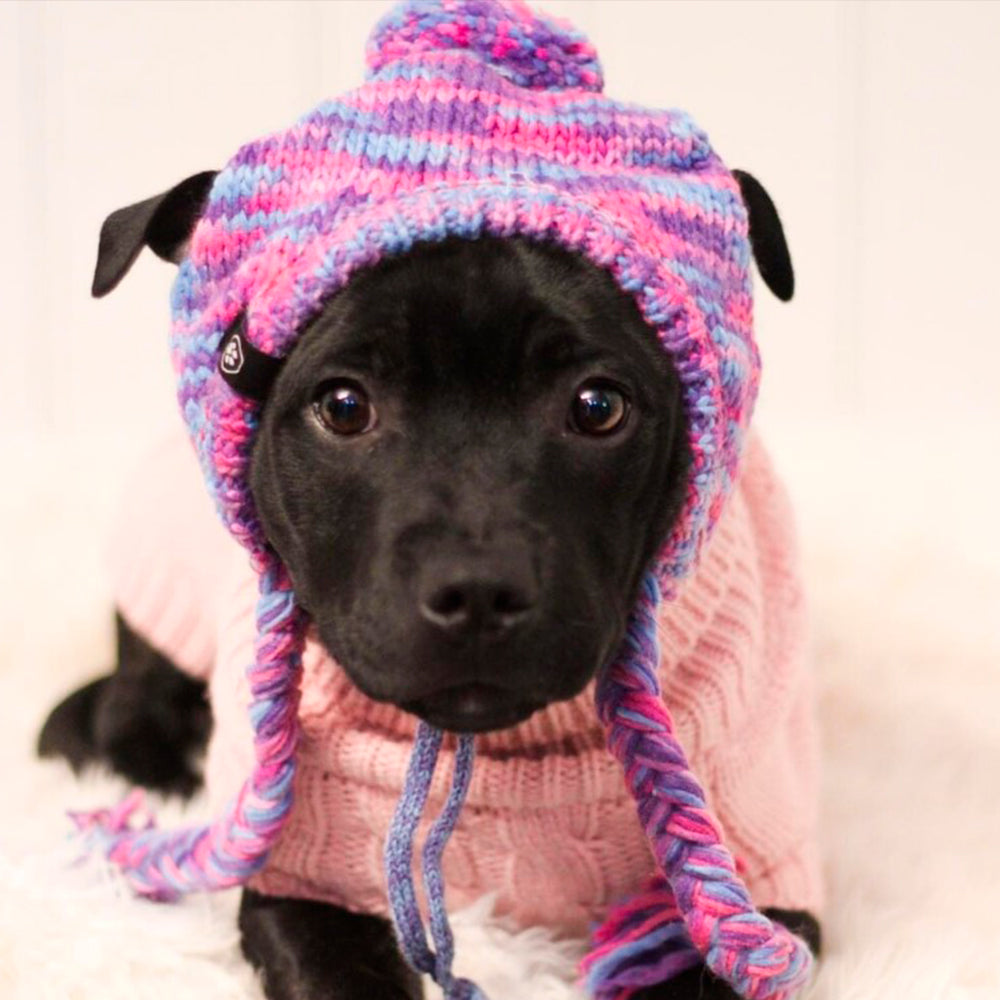Puppy Schedule Made Easy: Tips for a Happy and Healthy Dog
Welcoming a new puppy home is like being swept up in a hurricane of happiness—there's excitement at every turn, endless cuddles, and let's not forget, the occasional pee puddle. But here's the thing: amidst the chaos of chewed-up shoes and heart-melting moments, lies the need for some serious structure.
Creating a puppy schedule is a bit like a dance. It requires testing, trial, and error—not just for your little tail-wagger but for you, too. The secret to success? Patience and persistence. Remember, your pup is soaking in their new environment, and you're on a learning curve, discovering their quirks and cues. Don't despair if it takes a couple of attempts to get it right or if there are missteps along the way.
Think of your puppy's schedule as prime time for bonding, a period to cultivate good habits and behavior patterns. It's your chance to grow a deep connection with your lifelong friend by establishing trust and communication from the get-go. So let's embark on this journey with a smile, a treat pouch, and the perfect plan to keep those tails wagging!
The Importance of a Puppy Schedule
Imagine a sample puppy schedule as your playbook for puppy parenting. Just as a newborn baby thrives on predictability, so does your puppy. Having a regular routine for meals, potty breaks, and bedtime makes sense in a pup's world. It helps with potty training, creates a framework for puppy training, and aids in grooming your pal to become a well-mannered adult dog.
Plus, don't forget to check out our adorable knit dog sweaters and cozy dog pajama onesies to keep your furry friend snug day and night!
Key Elements of a Puppy Schedule
When plotting out your puppy’s day, it is more than just a series of tasks; it’s the roadmap for a healthy and happy life. There are a few core activities to map out: ample sleep for your young puppies, consistent potty time to reinforce potty training, scheduled feeding of the right puppy food to nourish your growing pup and plenty of interactive playtime for mental stimulation. Incorporating these into your pup's day sets a foundation for a thriving daily schedule.
Here are some key elements you’ll need to weave into your puppy’s schedule:
1. Feeding Time:
Frequent meals for growth, puppies grow at lightning speed, and to fuel that growth, they need regular meals. Try to synchronize their feeding times with your own to establish a steady rhythm throughout the day. This not only aids in their physical development but also sets a predictable pattern that your pup can depend on.
2. Potty Breaks and House-Training Routine:
Regular bathroom habits are important like clockwork, your puppy needs to head outdoors for potty breaks. At least every two to four hours is a good rule of thumb for puppy potty time. Remember to whisk them out after meals, naps, and play sessions. This routine is instrumental in successful house training, helping you to sidestep those little accidents and teaching your pup the proper spots to relieve themselves.
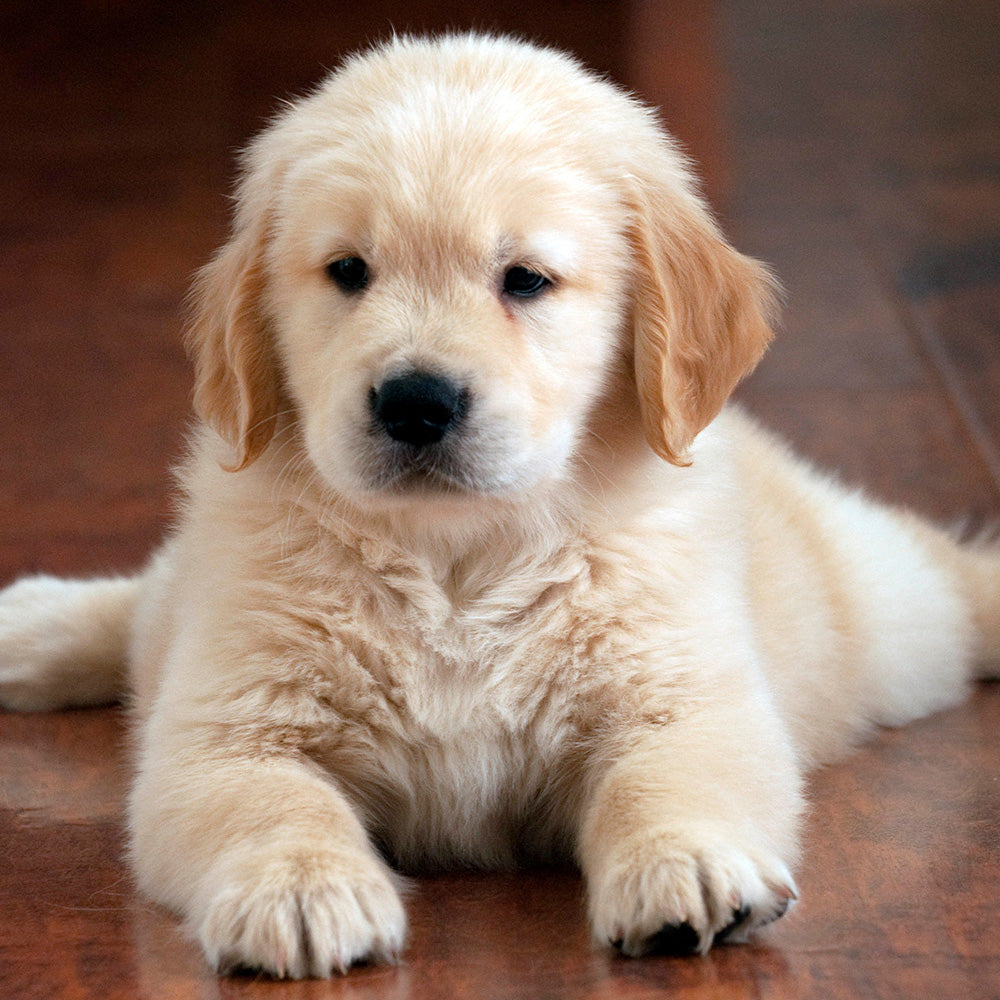
3. Playtime and Exercise:
Energetic Escapades:* Puppies are little balls of energy needing an outlet to bounce around. Playtime is not only fun but necessary for their physical and mental well-being. Just be mindful to keep exercise gentle in these early months. Overdoing it before they're fully grown can put unnecessary strain on their developing bodies.
4. Socialization and Training:
Training your puppy can start within the first few weeks. Introducing your puppy to a variety of experiences, humans, and other dogs primes them for a well-adjusted life. Incorporate puppy training into the mix to instill discipline and enhance their learning. These sessions can even double as bonding time and can blend seamlessly with interactive playtime.
Socialization with other dogs should only happen once your puppy is fully vaccinated, but in the meantime, introductions to new environments and family members can begin at home.
5. Downtime and Sleep:
Never underestimate the power of a good snooze. Puppies are notorious nappers, snatching Z's whenever they can. They need a tranquil space to unwind after a pup's day filled with exploring and growing. Ensuring regular nap times during the day, as well as a peaceful spot to sleep at night, is pivotal for their health and happiness.
While sticking to a routine provides a fantastic framework, it’s equally important to tailor the schedule to your puppy’s unique personality and growth milestones. As your young puppies mature and learn more about their new environment, your puppy training schedule might need tweaking. Flexibility is your friend, allowing you to accommodate your growing pup's changing needs, ensuring their tail wags with joy through every potty break, mealtime, and dream-filled nap time.
Sample Puppy Schedule
Each puppy's age calls for a tailored approach—younger puppies need more food, more frequent potty breaks, and lots of love. Follow a puppy schedule that's a week-by-week guide to help you and your 8-week-old puppy ease into your lives together, ensuring that from nap time to playtime, every moment is an opportunity to learn and grow.
Welcoming an 8-week-old puppy into your home is the beginning of a wonderful journey full of learning and love. To help this adventure go smoothly, here's a week-by-week guide detailing what to expect and how to navigate the common hurdles you and your furry friend might encounter.
While you're creating your schedule, explore our Activewear Walk Collection for stylish and functional gear. Contact us to find out more!
Week 1: Welcome Home
Focus: Settling in and establishing a routine.
Expectations: Your new puppy may whine and feel anxious as they get used to their new environment.
Tips: Create a warm, safe sleeping area. Maintain a calm and quiet environment to help your puppy settle. It is highly advisable to have someone at home with your puppy, especially in the initial stages of their introduction to a new environment. Leaving a young puppy alone before they have become accustomed to their new surroundings can be stressful for them, so ensuring they have company will aid in their comfort and adjustment.
Week 2: Bonding and Basic Training
Focus: Building a bond of trust and introducing basic commands like 'sit' and 'stay'.
Expectations: Your puppy may begin testing their boundaries during this time.
Tips: Use positive reinforcement and keep training sessions short but consistent.
Week 3: Socialization Begins
Focus: Gently expose your puppy to different people, pets, and sounds.
Expectations: The puppy may exhibit shyness or over-excitement in new situations.
Tips: Ensure socialization is a positive experience and don't overwhelm your pup.
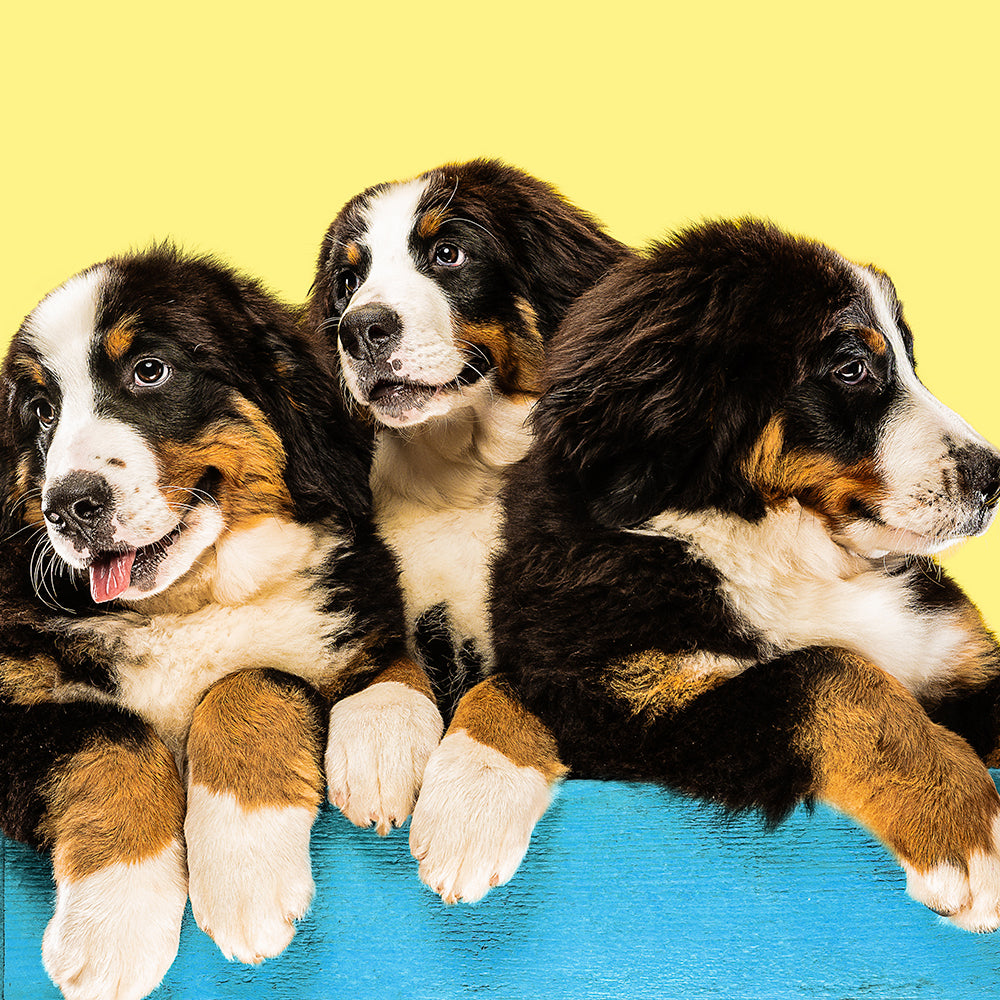
Week 4: House Training Intensifies
Focus: Establishing a consistent potty break routine and crate training.
Expectations: Accidents may still occur as your pup learns where it's appropriate to relieve themselves.
Tips: Adhere to a strict potty schedule and praise your puppy when they do their business outside. Always remain calm! It is strongly recommended that arrangements be made to stay at home for a period when a new puppy is brought home. This is essential to begin training and establish a solid routine from the onset.
Week 5: Teething and Chewing
Focus: Direct your puppy's chewing instincts to appropriate outlets.
Expectations: Your puppy will likely want to chew on anything they can find.
Tips: Offer various safe and suitable chew toys and begin handling their paws and mouth gently to accustom them to future examinations and teeth brushing.
Week 6: Vet Visits and Vaccinations
Focus: Health checks and beginning the vaccination schedule.
Expectations: Your puppy might feel nervous or uncomfortable.
Tips: Reward your puppy for calm behavior at the vet and keep a thorough record of their vaccinations and health checks.
Week 7: Advanced Training
Focus: Revisiting previously learned commands and introducing new ones.
Expectations: Your puppy may show increased receptiveness to training.
Tips: Gradually increase the complexity of training sessions. And if you're looking to sharpen those skills with some professional help, consider getting in touch with
The Online Dog Trainer for expert guidance.
Week 8: Preparing for the Future
Focus: Solidifying the routines established and preparing for the upcoming adolescent phase.
Expectations: Expect your puppy to start showing signs of independence.
Tips: Continue socialization efforts with different dogs, people, and environments. Start increasing the duration of alone time gradually to prepare for more extended absences.
Through all these stages, the golden rules are patience and consistency. Each puppy is a world unto themselves, with their own pace and personality quirks.
Nighttime Routine for an 8-Week-Old Puppy
Help your puppy settle into their crate at the end of the day and establish a routine that includes a final potty break to help them fall asleep without a hitch. Gradually extending the time between nighttime potty breaks will ensure both of you get the sleep you need.
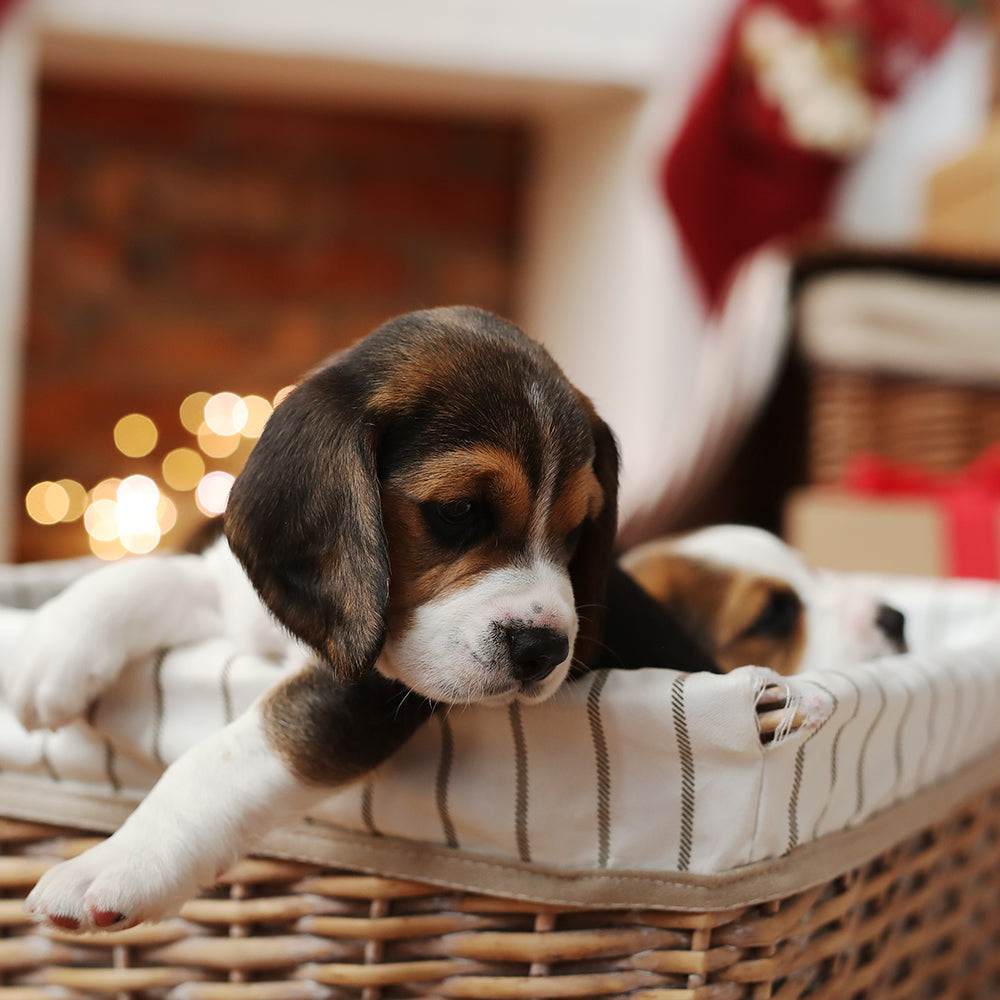
Courtesy: Freepik
How to Handle Your Puppy Crying During the Night
Creating a comforting environment with their favorite toy in their crate can make all the difference. Maintain a consistent bedtime and wake-up routine for those middle-of-the-night potty breaks. If your puppy continues to cry at night, seek advice from a professional to ensure your puppy's needs are met.
Your puppy's daily schedule should include several potty breaks at key times—after waking up, following meals, and before bedtime preparation. Take your puppy out for a toilet break before you go to bed to help them last through the night, this helps avoid accidents and teaches them where and when it's appropriate to go.
Should you find yourself awake during the night's early hours, it's beneficial to schedule a peaceful, undisturbed potty break for your puppy. Such nighttime outings aid in accident prevention and gradually contribute to teaching your puppy bladder control.
Puppy Basics
As your puppy grows, they'll be able to hold their bladder for longer, and you can adjust their potty times accordingly. For most puppies, a mid-morning walk, an afternoon play session, and an evening training time will keep their day full.
Incorporating training into your pup's day from an early age makes sense. It's best to start training with basic commands and gradually introduce more complex tasks as they get older. Younger puppies will have shorter attention spans so keep training sessions brief and rewarding.
When you're not around, a dog sitter can help maintain your puppy's schedule. It's vital they understand your pup's daily needs, including feeding times, walk times, and how often they require a potty break.
A solid training schedule also includes proper nutrition. Monitor how much puppy food your pup consumes and be ready to offer more food as they grow into an active, energetic dog. Make sure fresh water is always available, especially after time playing or exercising.
The right balance of puppy food and a consistent feeding routine is crucial for a puppy's development. While younger puppies may need to eat more often, a good rule is to offer meals three times a day. Don't forget to keep their water bowl full! Regular visits to the vet and considering pet insurance are also part of keeping your puppy healthy.
Lastly, let's not forget the importance of ensuring your home is puppy-proofed. Secure cords, ensure the trash can isn't accessible, and remove anything that might be harmful to your inquisitive pup. Investing in chew toys and a sturdy leash will also help keep your puppy entertained and safe whether you're at home or out for a walk.
Embrace this regular routine, spend time with your pup, and get the whole family involved. It takes a village to raise a puppy, and when everyone works together, the experience can be incredibly rewarding. Your patience and dedication will pay off, leading to countless years of friendship and love.
Conclusion
A structured schedule isn't just for organization's sake; it's a pathway to a happy, well-adjusted dog. Stay patient and persistent, and watch as your new puppy blossoms into a fantastic adult dog.

